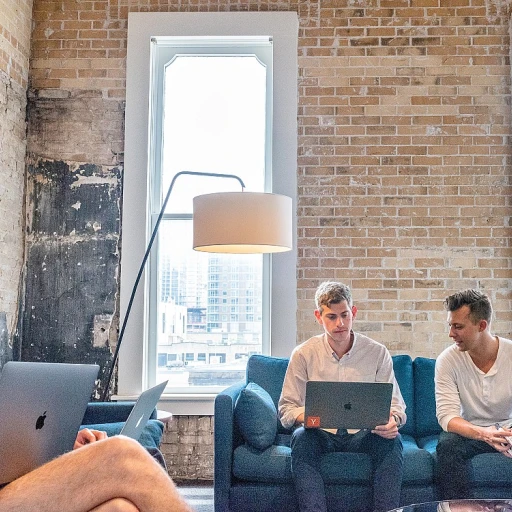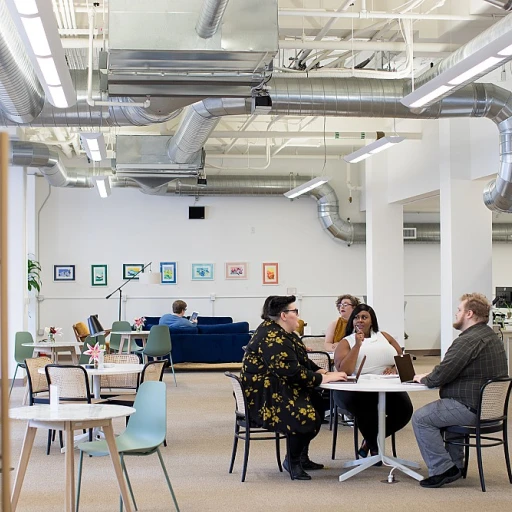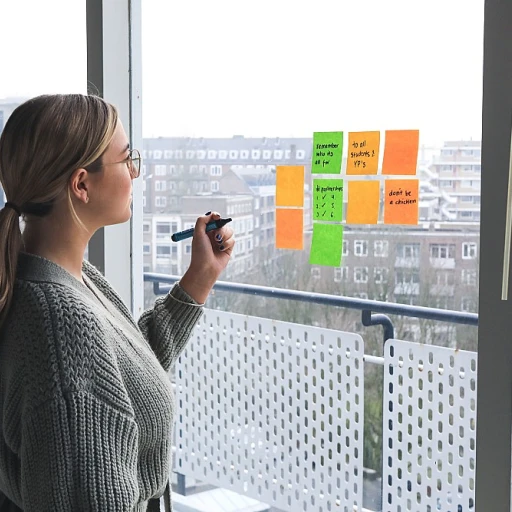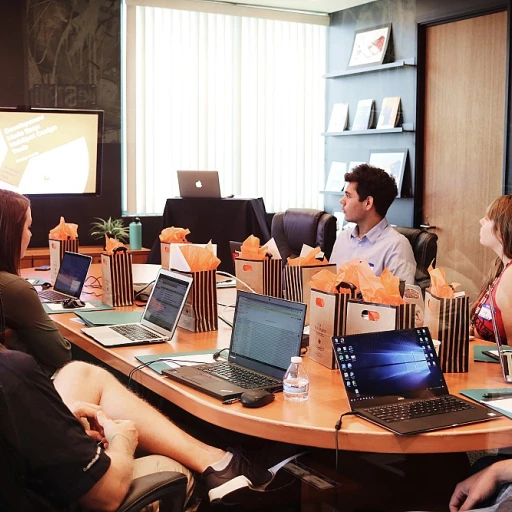Understanding the Need for Organization
Recognizing the Importance of Organization
In the bustling business environment of the Arabian Emirates, maintaining an organized structure is crucial. Organization helps in efficiently managing time and resources, which are essential for the smooth operation of any company. When people and processes are well-organized, it reduces stress and anxiety, allowing employees to focus on their tasks without feeling overwhelmed. It also plays a significant role in enhancing mental health by reducing clutter and promoting a sense of control over one's work life.
However, achieving the right balance in organizing is not just about having a tidy desk or a well-sorted email inbox. It involves creating systems that help manage day-to-day operations efficiently without becoming a burden. When organization is implemented effectively, it can lead to a more productive work environment where employees feel motivated and engaged.
It’s important to remember that organization should not be an end in itself but a means to live life more fully and productively. Professional organizers often emphasize the need to declutter both physical and mental spaces to stay organized. This involves identifying key areas that require attention and implementing strategies to simplify processes, as discussed in other sections of this article.
Ultimately, the goal is to create a work environment where people can spend time on meaningful tasks rather than getting bogged down by too much stuff or feeling overwhelmed. By fostering a culture that values both structure and flexibility, companies can ensure that their employees remain productive and satisfied in the long term.
When Organization Becomes Overwhelming
Recognizing When Structure Turns into a Barrier
The pursuit of a highly organized workspace often brings a sense of accomplishment and order. While organization helps us manage tasks and maintain mental clarity, it can sometimes lead to an overwhelming environment, cluttering our schedules to the point of stress and anxiety. It is crucial for office managers in Arabian Emirate companies to recognize when the very systems meant to help are creating more barriers than solutions.
Too much organization may lead to excessive time spent managing systems. Instead of facilitating productivity, employees can find themselves buried amidst a sea of protocols and guidelines, unable to focus on the core tasks at hand. This scenario is not uncommon, and recognizing these red flags is essential in maintaining a balance between structured tasks and a flexible approach.
Feeling overwhelmed is a common experience when organization overrides simplicity. Employees might spend more time organizing than doing impactful work, eventually affecting their morale and mental health. Overly strict regulations may lead to a stack of redundant tasks that serve little purpose but to fill time, therefore impacting the long-term efficiency of an organization.
The journey towards understanding that organizational approaches can become counterproductive is not easy. However, being aware of this distinction can lead to significant improvements in both professional and personal life. Cross-cultural dynamics and workspace diversity contribute to how individuals perceive organization, stressing the importance of recognizing and addressing these unique challenges.
Identifying Key Areas of Over-organization
Pinpointing Areas of Excessive Organization
Dealing with excessive organization can often lead to unneeded stress and anxiety. When the structure takes precedence over flexibility, it creates an environment where employees feel overwhelmed by the sheer amount of rules and expectations. It's essential to identify specific areas within Arabian Emirate companies where this over-organization manifests.- Workspaces: Cluttered or overly organized workspaces are a common issue. Employees may find themselves either spending too much time organizing or dealing with too much stuff they rarely use. This can affect their mental health and productivity, leading to stress. To combat this, professional organizers suggest creating systems that allow for periodic decluttering and organizing.
- Processes and Protocols: Processes that include too many steps or layers of approval can make people feel overwhelmed and stifle innovation. The goal is to organize processes in a way that promotes efficiency without burdening employees with too many tasks or required approvals. Regularly reviewing these processes helps in identifying if they are still necessary or if they’ve grown beyond their initial purpose.
Strategies for Simplifying Processes
Streamlining for Efficiency
In the fast-paced environment of Arabian Emirate companies, streamlining processes is essential to maintain efficiency and reduce stress. Over-organization can lead to a cluttered workflow, where employees spend too much time organizing rather than executing tasks. To combat this, it's crucial to identify and simplify key processes, ensuring that organization serves its purpose without becoming a burden.
Embrace Minimalism in Processes
One effective strategy is to adopt a minimalist approach to organizing. This involves decluttering both physical and digital spaces, which can help reduce mental stress and improve focus. Start by evaluating the current processes to identify unnecessary steps or redundant tasks. By removing these, companies can create a more streamlined workflow that supports productivity and mental health.
Prioritize and Schedule
Another strategy is to prioritize tasks based on their importance and urgency. Encourage employees to schedule time for organizing at the beginning or end of the day, allowing them to focus on critical tasks during peak productivity hours. This not only helps in staying organized but also prevents feeling overwhelmed by the workload.
Utilize Technology Wisely
While technology can be a powerful tool for organization, it's important to balance its use with human interaction. Automating routine tasks can free up time for more strategic activities, but over-reliance on technology can lead to a lack of personal touch and increased stress. Encourage employees to find a balance that enhances their work without replacing valuable human connections.
Foster a Culture of Continuous Improvement
Finally, creating a culture that values continuous improvement can help keep processes efficient and relevant. Encourage feedback from employees on existing systems and be open to making changes that can enhance productivity and reduce clutter. By fostering an environment where people feel empowered to suggest improvements, companies can ensure that their organizational strategies remain effective in the long term.
Balancing Technology and Human Interaction
Integrating Balance with Tools
In the dynamic environment of Arabian Emirate companies, finding a balance between technology and human interaction is crucial for maximizing efficiency while maintaining employee well-being. Striking the right balance can help alleviate the feeling overwhelmed that often accompanies managing cluttered schedules and organizing day-to-day tasks.
The key to staying organized lies in leveraging technology to streamline task management without sacrificing essential human touch. Automated systems and digital organizers can help manage time effectively, ensuring that every day is spent on valuable work rather than managing clutter. However, it's vital not to over-rely on these tools, which can lead to mental health stress and anxiety for some people as they feel tied to a screen.
- Schedule Time: Encourage employees to schedule time to use technology for tackling routine tasks, freeing up their human creative abilities for more complex problems.
- Task Prioritization: Implement digital tools that help organizing tasks but also provide insights into mental health best practices, such as reminders to take breaks. This integration addresses potential stress before it escalates.
- Regular Review: Hold regular sessions to review whether the technology being used alleviates or adds to the stress. This ensures it continues to support rather than overwhelm organization efforts.
A professional approach involves regularly revisiting the items and processes to see if they are adding to the 'too much stuff' sensation that can contribute to workplace stress. Promotion of decluttering practices can ease the mental clutter, allowing employees to live life more fully within their professional roles, while maintaining a healthy balance with their personal life.













